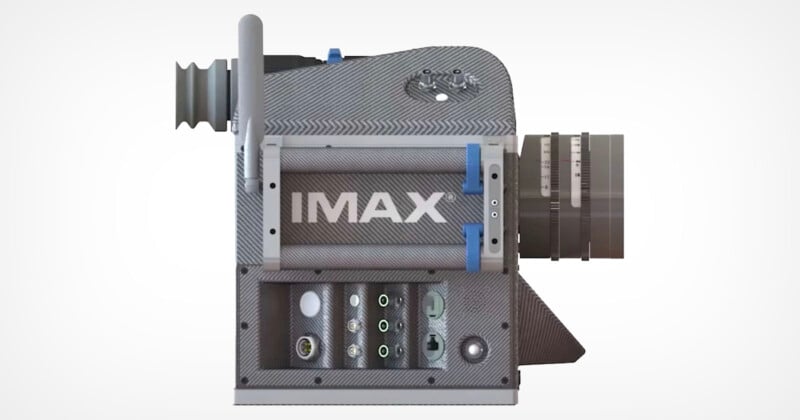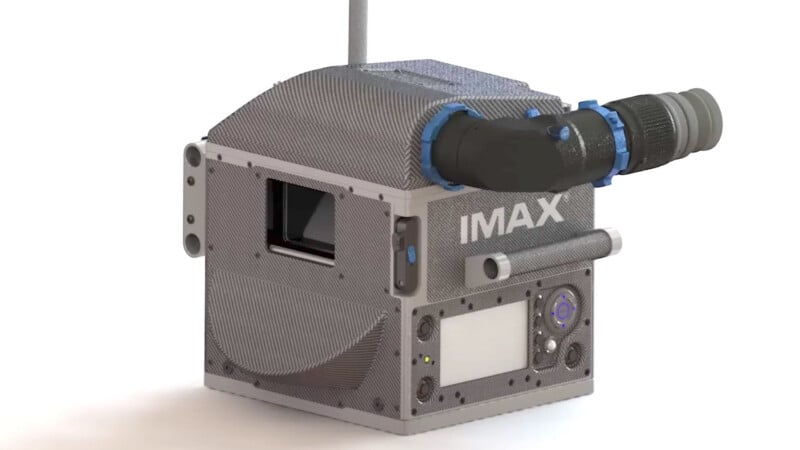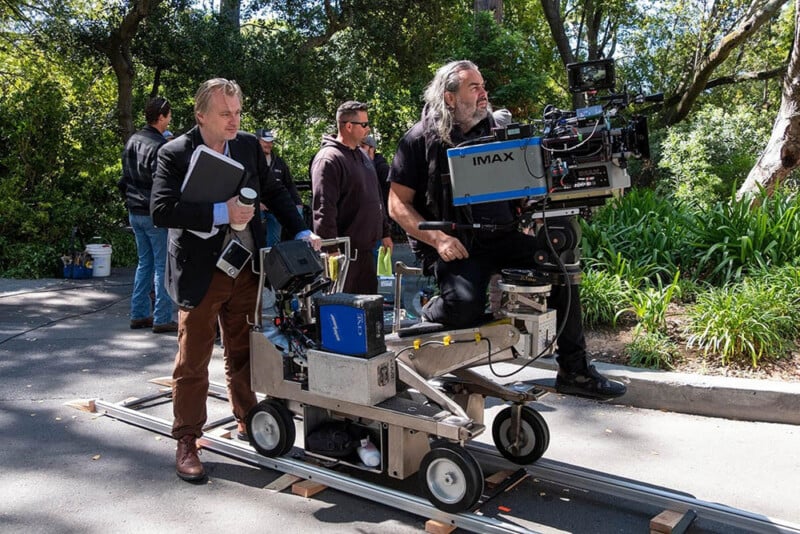
The second generation of IMAX cameras — which are being built from scratch — are expected this year with the end goal of making them more user friendly.
The first generation of IMAX cameras, which go through 1,000 feet of film in just three minutes, date back to the 1990s. While updating film cameras sounds odd, the increased interest in IMAX cameras — thanks in large part to successful movies such as Oppenheimer and The Dark Knight being at least partially shot on them — means there is more demand than ever for the large format cameras.
Y.M. Cinema reports that the new 65mm film cameras will be made out of the same materials used to build Formula One cars and fighter jets: carbon fiber alloys and titanium.
The new fleet will also boast wireless connectivity, new optics, a five-inch color display, honeycomb sandwich panels, and more.

Time for a Replacment
IMAX only has nine film cameras which are decades old and almost constantly being used by Christopher Nolan.
“I know it sounds strange to modernize a film camera in this day and age but we wanted to bring a large format film camera to a position where we can actually compete with the new, modern digital cameras,” Milos Popovic, IMAX principal engineer, tells the Wall Street Journal.
“It’s made mostly out of composite materials — carbon fiber, honeycomb sandwich panels — the same stuff Formula One is made out of. And titanium, the same stuff fighter jets are made out of.
“Besides the body, it’s getting new optics, a five-inch full-color display for user interaction, wireless connectivity while the camera is taking 15 perforations, IMAX analog film in 18K — it’s super exciting.”

IMAX has released some prototype renderings of the new IMAX camera after the release has been significantly delayed but at least four models are expected this year.
And Y.M. Cinema speculates that Dune: Part Three would be the perfect film to be shot on the new IMAX cameras with the script already being worked on after the huge success of Dune: Part Two which was shot on the ARRI 65 and some Soviet-era lenses.
